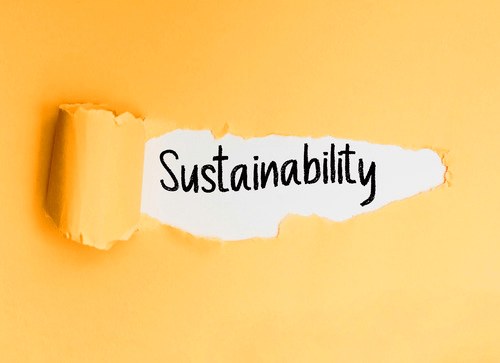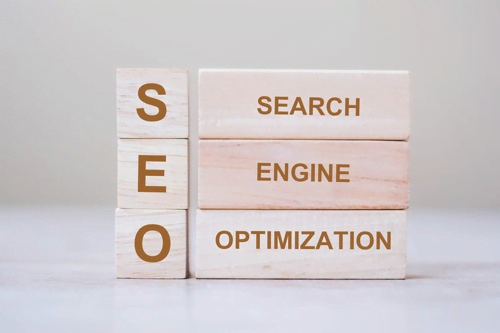
INTRODUCTION
Currently, the world has shifted its focus on creating a sustainable environment for businesses and their personnel to thrive in after being side-lined for a long period. To maximize the financial, reputational and other benefits, businesses should prioritize sustainability in their strategic plans and work to achieve their sustainability goals. Furthering a company’s market position as an environmentally conscious organization, sustainable initiatives that are made public can be extremely beneficial.
In the current state of affairs surrounding environmental sustainability, many companies and their customers are rightly adopting more of these practices to safeguard our lives. To lessen their impact on the environment, they have begun recycling more and composting less.
Some are using only renewable energy and are also cutting back on water use. However, public perception may shift in the long run if some businesses don’t swiftly respond to mounting concerns about climate change.
Sustainable practice is the roadmap on how companies and organizations would generate their businesses in a way that doesn’t harm the environment. Any sustainable business plan should provide a positive contribution to the local community or society at large while simultaneously working to reduce issues of inequality, environmental degradation and social injustice.

What are Sustainable Practices in business?
Global issues like climate change, Depleting Natural resources, Pollution, Gender inequality, human rights issues and many more are no longer the responsibility of only Governments and NGOs. Businesses too now have a stake in these issues and it’s reflected in their business strategies where sustainability has become a key component.
Sustainability in business refers to practices that have a net positive effect on society, the environment, or both, while still producing profits for the company’s owners. More and more C-suite executives are coming to appreciate the role that organizations can play in not only solving global problems but also propelling their own companies forward.

Financial and investment analysts have been trying to find various routes to execute their sustainability plans. They may discuss how they’ve reduced their carbon footprint or increased their electric efficiency. Securing growth funding could be facilitated by showing investors how your company has become greener and how it plans to remain so.
As a result of global warming, pollution and weather extremes, regulations are being imposed on corporations to help address climate change. Some companies’ denial of their role in environmental deterioration also contributes to the urgency of enacting these regulations.
Not properly managing resources like water and power is one example. Another is improperly disposing of hazardous waste. If businesses get on board with such practices right away, they can avoid environmental penalties in the future.

Top Features of Sustainable Business Practices
Reduced Costs
Money savings in an inseparable, but not probable, part of an organization. Feasible practices can help businesses to save up some money. For example- implementing power-saving measures can reduce a company’s energy bills. Energy consumption is a major part that utilizes tons of electricity on an everyday basis.
Increased profits
Sustainable businesses relish increased profits because they function more professionally and have lower overhead costs. Sustainable business involves implementing a sustainable business model which aims to be profitable in the long run as the organization has a variety of corporate sustainability strategies.

Improved public image
Consumers are showing a significant interest in businesses that are promoting the use of these practices. These practices can help the organization improve its online presence and this can lead to better financial results for them.
In addition, a firm’s reputation can be boosted through sustainability because it shows that the company is dedicated to ethical practices like the protection of natural resources, the promotion of social fairness, and the upkeep of a stable social and political system.
Offices that care about their employees’ health and the environment usually provide them with things like ventilation, windows and comfortable chairs. Therefore, these actions can assist reduce stress and improve morale at work.
Moreover, these practices are associated with respecting one’s staff. The company may encourage labor unions or provide pay and benefits that are equal for all workers, regardless of rank.
Enhanced social responsibility
Sustainability also calls for some responsibility that helps the organization evolve. When put into effect at the forefront, these sustainability practices make the organization more appealing to the consumers as they also wish to promote such businesses.
Consumers want to help them because they simultaneously work for the betterment of both, their business and the environment. It’s a win-win for the company and the community it serves.

Importance of Sustainable Businesses and Practices
It’s not only the ethical reasons why a business needs to incorporate such practices, rather there are financial reasons too related to the consumers, employees, government regulation, etc.
Prospective employees are increasingly looking for companies that are driven by environmental concerns in mind. Sustainable companies are more attractive to employees
Consumers are willing to pay more for goods from environmentally responsible brands. Governments around the globe will keep bringing in new regulations and expand the scope of current compliances to adhere to the Sustainable Development Goals (SDGs)
These practices that Optimize operational efficiencies and reduce resource consumption might have a greater implementation cost but the long-term gains will justify the investments.
Businesses are trying to create an impact on society by initializing their feasible practices which will aid in improving their image.
A corporation can save money, make more money and do good for the community all by adopting these practices.
Younger generations tend to follow and purchase from businesses that are promoting global sustainability ideology.
Hence, it is required to offer correct and efficient marketing of these practices so that a large number of people understand what you are trying to do and/or change by utilizing these practices.

ENVIRONMENTAL BENEFITS OF SUSTAINABILITY PRACTICES
Reduced Carbon Footprint
Carbon emissions arise from all sorts of business operations be it production, packaging, transportation or distribution. Sustainable practice can be applied in all these areas to mitigate emissions. Practices to improve energy efficiency by using renewable sources of energy wherever possible.
They are reducing emissions through supply chains by sourcing raw materials locally and using environmentally friendly modes of transportation. Reducing packaging waste, and implementing recycling programs. Some businesses are part of carbon offsetting projects like reforestation or renewable energy projects to balance out their carbon emissions. All of these activities can help in reducing the carbon footprint of a company.
Conservation of Natural Resources
Such practices can be effectively used in production processes to reduce the consumption of non-renewable resources. Efficiently using resources by minimizing waste, and reusing or recycling materials wherever possible.
Making use of renewable sources of energy like solar wind or hydropower to minimize the use of fossil fuels. Businesses can also make a point to source materials from suppliers who themselves follow these practices and avoid materials obtained through harmful practices.
Increased biodiversity
Sustainable practices can help to protect and enhance biodiversity by supporting responsible land use and reducing habitat destruction. Afforestation is also a need in current times as it’s a very big support in the production of oxygen.
Conservation of forest lands can help to maintain healthy ecosystems and preserve wildlife habitats. This also plays a part in safeguarding biodiversity.
Safeguarding of resources
Sustainable practices help protect a variety of valuable resources, including water, trees and minerals. For the sake of future generations’ ability to continue using them sustainably today. To meet our requirements without diminishing natural resources, we can employ methods like recycling, composting, and environmentally friendly farming.
By recycling, reducing waste and making ethical product purchases, businesses may do their part to preserve these resources for future generations.
Reduced waste
Sustainable practices, such as recycling initiatives, reduced packaging and decreased energy consumption, all contribute to a reduction in waste. As a result, this may lead to less garbage being dumped in landfills, which is a positive step toward a more sustainable future.
Businesses are also focussing on reducing their e-waste. This can be done by designing electronic devices that are repairable and built to last, so that less electronic waste is thrown away, by extending the lifespan of the equipment.

ECONOMIC BENEFITS OF SUSTAINABILITY PRACTICES
Sustainability brings along plenty of economic benefits which is all the more reason to adopt a sustainable model for your business immediately.
Here are a few points that illustrate how sustainable business practices contribute to economic benefits:
Cost savings
Long-term savings can be realized through the use of energy-efficient or waste-reduction technology, which lowers utility bills and garbage collection fees.
Competitive advantage
When compared to its competitors, a business that engages in feasible practices stands out as more environmentally conscientious, which could lead to a rise in sales.
Reputation
Clients are more loyal to and confident in companies that prioritize long-term viability. By implementing sustainable business practices they aim at improving their online image and accomplishing their corporate social responsibility.
Employee retention
By investing in a healthy workplace and a positive corporate culture, businesses may raise employee satisfaction, which in turn can boost retention and reduce the cost of recruiting and training new employees.
Innovation
Ultimately, sustainable business practices may have beneficial economic consequences by spawning the development of new products or services by encouraging innovation and creative problem-solving.

What prioritizes sustainability?
Multiple variables have been accounted for by various firms to be sustainable but not every one of them is starting to work on them.
These advantages are available to companies who successfully reduce their wasteful practices and hence their environmental impact:
Achieving cost savings
To increase output, we must reduce resource use, which will also reduce waste and pollution. The organization can use the funds it saves to have an even greater positive effect on the environment.
Enhancing credibility, trust and brand reputation
Stakeholders increasingly judge companies by their corporate values and give them a deadline as there’s an increasing demand to be sustainable. Pledging to waste reduction and being transparent about development helps to build credibility and relationships based on trust with customers, partners and employees.
Meeting customers’ needs
If a company is committed to sustainability, it will be better able to service its corporate clients that include environmental qualifying elements in its purchasing processes. Seventy-seven percent of U.S. adults, according to a recent Harris Poll, prefer to shop from businesses whose goods support measures to lessen the impacts of climate change. This strengthens the case for sustainability as a key to keeping customers happy.
Raising market standards
When competitors adopt such practices, it’s harder for them to justify questionable business or environmental practices.
Improving employee engagement and talent acquisition
Creating an engaging environment builds a sense of responsibility within the firm and the community. When deciding between two positions with the same salary, applicants, especially millennials, may be more interested in working for a company that prioritizes social and environmental issues like waste reduction.

SUSTAINABLE BUSINESS PRACTICES IN DIFFERENT INDUSTRIES
Businesses in every industry have recognized the growing significance of eco-friendly policies and procedures in recent years. Many multinational corporations (MNCs) have stated their intention to introduce environmentally responsible policies.
Although sustainability is a complex issue requiring ongoing attention and action, firms can improve the quality and speed with which they adopt sustainable operations by employing agile innovation strategies. Companies that don’t prioritize sustainability in today’s socially and ecologically conscious society risk falling behind.
Many different industries are actively working towards creating a sustainable environment, including manufacturing, retail, information technology, media and the entertainment industry. Green production methods and the use of renewable energy have been on the rise in recent years as manufacturers strive to reduce their environmental impact. Eco-friendly practices, such as recycling and supporting local suppliers, are increasingly gaining traction in the retail sector.
To reduce their impact on the environment and increase productivity, IT companies are exploring artificial intelligence and robotics. The media are starting to do their part by using less non-biodegradable materials and more recycled paper.
Feasible practices are essential for companies of all sizes and in all industries to implement immediately, and not simply for the sake of the environment. By making these changes, businesses can enhance their standing in the marketplace, win over the public’s favor, and fulfill their moral commitments to their surrounding communities.

SOCIAL BENEFITS OF SUSTAINABILITY PRACTICES
Plenty of social benefits can be seen by adopting a sustainable methodology for your organization.
Below are some of these practices that can benefit society:
Improvement of health and well-being
Sustainable business practices have many positive effects on people’s lives and the well-being of their communities. For instance, reducing air and water pollution, encouraging the use of sustainable and healthy food sources, and making it easier to exercise via sustainable transportation options are all proven ways to improve health outcomes.
Support of local communities
Some of these practices can also support local communities by creating jobs, generating economic growth and contributing to community development. By purchasing the materials locally and supporting local businesses, sustainable businesses can strengthen the local economy and build stronger relationships with the community.
Promotion of diversity and inclusion
A company’s willingness to actively promote an inclusive and diverse workforce is positively correlated with its dedication to sustainability. Fostering diversity in hiring practices, giving chances for professional growth for workers and emphasizing the value of diversity and inclusion in marketing and promotion are all ways in which sustainably minded firms may contribute to a more just and equitable society.
Embraced Remote Working
Less time spent commuting means less time spent away from nature. Fewer cars on the road mean less time spent sitting in traffic. This adds up to fewer emissions of carbon dioxide into the atmosphere.
Making just one small change can have a huge effect on an organization’s efficiency and environmental impact. Having fewer people in the office also means spending less money on things like utilities, furniture and supplies.

Conclusion
creating a more sustainable business strategy requires a concerted effort from all levels of the organization, a commitment to ongoing improvement, and a willingness to invest in sustainability initiatives. By taking these steps, businesses can reduce their environmental impact, improve their social responsibility, and ensure long-term business success.
sustainable business practices can have far-reaching social benefits, improving the health and well-being of individuals and communities, supporting local economies, and promoting diversity and inclusion. By prioritizing sustainability, businesses can make a positive impact on society while also ensuring long-term business success.
Sustainability isn’t easy. It takes commitment and dedication from employees at all levels to succeed at being a responsible company. However, once you begin to make the smallest of changes, you’ll soon begin to notice that morale and productivity will increase.
From here, you’ll start to witness an increase in sales while your overall costs decrease. It’s a win-win scenario; by becoming a sustainable business, you’re helping to save the environment while pleasing consumers, shareholders and employees alike.
Businesses are more and more adapting to this familiarity towards being sustainable. Several major corporations are working on innovative sustainability practices that they hope to incorporate into their operations.
A large number of corporations are reducing not only their levels of carbon footprints but also using various recycling policies to have a stand in this race for sustainability. This is not only a trend now, businesses are trying to become sustainable by incorporating various strategies and implementing them. This also leads to the procuring of various types of investments.
Investment in technology can assist in your business sustainability efforts because it helps improve your overall efficiency and productivity. Thus, a carefully planned, well-rounded commitment to sustainability is not just an appropriate response to the growing public demand for sustainability. It is a wise decision for the financial future of any organization on this rapidly warming planet.











